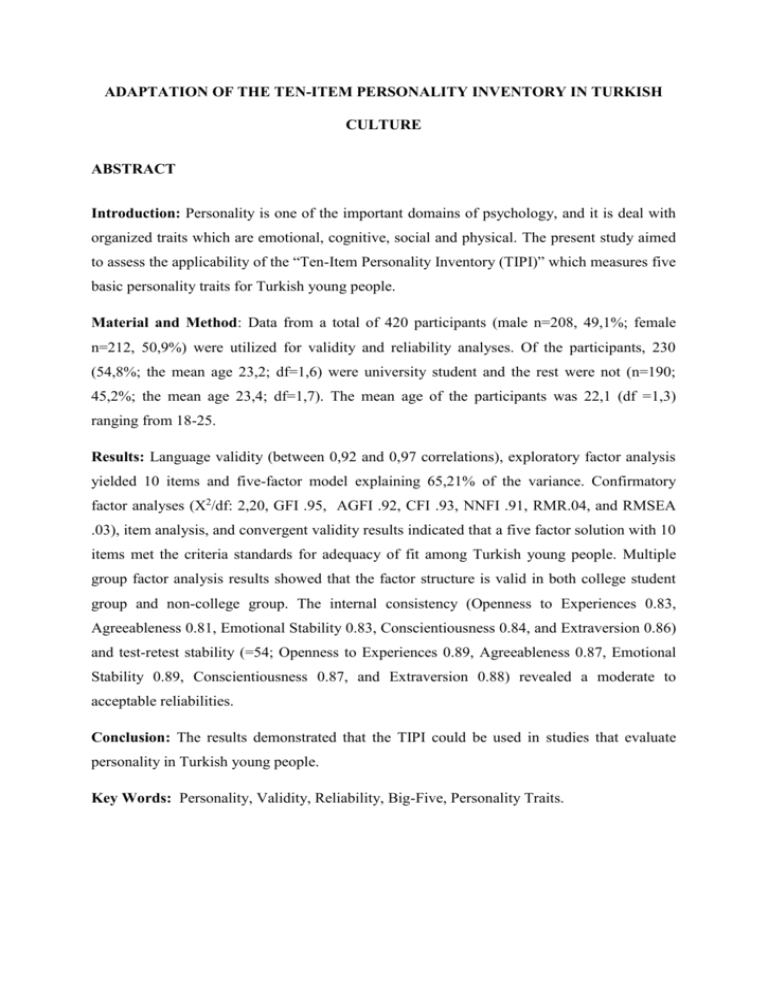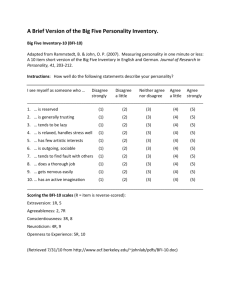here (in word format)
advertisement

ADAPTATION OF THE TEN-ITEM PERSONALITY INVENTORY IN TURKISH CULTURE ABSTRACT Introduction: Personality is one of the important domains of psychology, and it is deal with organized traits which are emotional, cognitive, social and physical. The present study aimed to assess the applicability of the “Ten-Item Personality Inventory (TIPI)” which measures five basic personality traits for Turkish young people. Material and Method: Data from a total of 420 participants (male n=208, 49,1%; female n=212, 50,9%) were utilized for validity and reliability analyses. Of the participants, 230 (54,8%; the mean age 23,2; df=1,6) were university student and the rest were not (n=190; 45,2%; the mean age 23,4; df=1,7). The mean age of the participants was 22,1 (df =1,3) ranging from 18-25. Results: Language validity (between 0,92 and 0,97 correlations), exploratory factor analysis yielded 10 items and five-factor model explaining 65,21% of the variance. Confirmatory factor analyses (X2/df: 2,20, GFI .95, AGFI .92, CFI .93, NNFI .91, RMR.04, and RMSEA .03), item analysis, and convergent validity results indicated that a five factor solution with 10 items met the criteria standards for adequacy of fit among Turkish young people. Multiple group factor analysis results showed that the factor structure is valid in both college student group and non-college group. The internal consistency (Openness to Experiences 0.83, Agreeableness 0.81, Emotional Stability 0.83, Conscientiousness 0.84, and Extraversion 0.86) and test-retest stability (=54; Openness to Experiences 0.89, Agreeableness 0.87, Emotional Stability 0.89, Conscientiousness 0.87, and Extraversion 0.88) revealed a moderate to acceptable reliabilities. Conclusion: The results demonstrated that the TIPI could be used in studies that evaluate personality in Turkish young people. Key Words: Personality, Validity, Reliability, Big-Five, Personality Traits.











